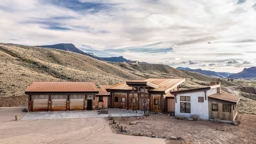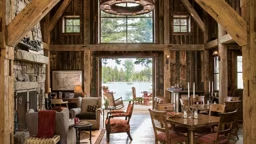 Photo by Thomas Richter / Unsplash
Photo by Thomas Richter / Unsplash
By Wyatt Myers
Turning the dream home in your head into a reality requires a lot of hard work. You need to choose a home style, define your floor plans, find a builder you trust, and make hundreds of decisions during the construction process. But before any of that can begin, most people need to start at square one—with finding the right plot of land for that dream cabin. At first glance, it seems like buying land would be a fairly simple step in the process. Still, there are a number of things that potential property buyers should know to get exactly what they’re looking for and avoid any problems.
Getting Started
If you’re new to the area where you plan to build, obviously the first step is to find out what land is available for purchase. A trusted local real estate agent is the first person to contact. Many agents specialize in rural property listings, so they can give you a sense of what land is on the market. Of course, it’s okay to use a real estate agent as your starting point and then dig a little deeper on your own.
“Other people in the community might know about property for sale that the Realtors don’t know about,” says Allen Halcomb, president of MossCreek in Knoxville, Tennessee. “For example, bankers sometimes are aware of property before it even comes on the market. Builders are also a good source of information on property.” It also doesn’t hurt to take a drive with your eyes peeled for desirable land in the area.
“Many of our customers have purchased their property just by viewing a particular piece of property that was not listed for sale and asking the owner if they would consider selling some of the acreage,” says Mark Feder of Appalachian Log Structures in Ripley, West Virginia. “We found our property through a friend that knew we were looking for land, so spread the word if you’re in the market.”
See Also: Cabins on National Forest Land
Cost Considerations
As with most things in life, you typically get what you pay for with property. Simply put, if one piece of land is significantly less expensive than another, there is often a good reason. Many factors can play into the cost of a piece of property, but one of the key considerations is slope. Even a slight slope can complicate the construction process, notes Halcomb. “Flat property that costs $100,000 might actually be preferable to sloped property at $60,000.”
Some of the factors that result in cost savings on the front end of a land purchase may quickly disappear when you get into the construction process, so it’s important to do your research before committing to the “quick deal.” The steep slope mentioned earlier, for example, can add significant expense to building a safe foundation for the home. Halcomb adds that proximity to roads, utilities and water are also important considerations. A remote piece of property might seem desirable in theory, but you may end up footing a hefty bill to extend these services to a home on the property once it’s complete.
What to Look For … And Avoid
Ultimately, finding the ideal piece of land for your home involves vetting your hopes and dreams against the reality of what the land can handle. This isn’t to say that you can’t have the mountain view and the babbling brook in the backyard. It just means that you need to go the extra mile to make sure that the babbling brook isn’t part of a wetland, and that the mountain view isn’t resting on top of solid bedrock. “The soil itself is the single biggest consideration,” says Francie Cook, regional building consultant for Beaver Mountain Log and Cedar Homes in Deposit, New York. “A loamy soil is best for a building site.”
To assess a site’s soil, it might be best to consult with a local builder before you buy, says John Ricketson, of Hearthstone in Macon, Georgia. The builder can help you determine any problem areas, such as ground that’s too wet or too rocky to build on. The zoning restrictions of a particular area are another important thing to be aware of, notes Cook. “Many rural areas have no zoning,” she says. “What that means is the neighboring land owner may be able to park old junk cars and pitch a tent if they so desire. A few simple calls to the local township can prevent you from making a big mistake.”
See Also: Why Sitka, Alaska is the Perfect Place to Build a Seaside Cabin
Going Deeper
Fortunately, there are several safeguards in place that can protect potential property buyers from making a bad purchase. Ricketson says that a “perc test” is one of the most important of these. Essentially, this test measures how much liquid can percolate into the soil on the property, and it determines whether a septic system is feasible on the property. If a parcel of land can’t pass a perc test, it can be difficult or even impossible to build on it. In addition, a title search and survey should always be done on a property before purchase, Feder says. “The title search ensures that there are no liens against the property, and a survey can confirm property boundaries that may not have been marked or defined for many years.”
Closing the Deal
These tests and searches should be conducted before closing the deal on the land if possible. But in some cases, particularly for the perc test, testing may need to wait until after you’ve taken possession of the land. In these instances, Halcomb says you can protect yourself by making the results of these tests a “contingency of sale.” Basically, this means that if the property cannot pass the perc test, then the sale is off. Land purchases aren’t regulated in quite the same ways as home purchases, so potential buyers need to do their research and go the extra step to protect themselves.
In many cases, it’s best to go through the process with a professional like a real estate agent, or even an attorney, who has done it before. Looking for the perfect piece of land for your dream cabin can be an enjoyable pursuit. The key to keeping it that way is to research before buying and assess each potential site with a cool eye and the help of a seasoned pro or two.
See Also: Tips for Siting Your Cabin










